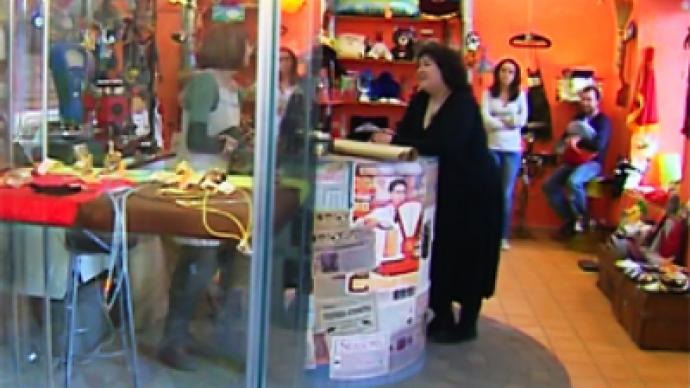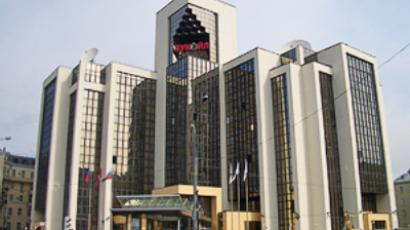Small business looks to become bigger during downturn

With the Russian economy dominated by big business, the economic slowdown is showing that some minnows can succeed with inventiveness and could do better with less red tape.
Small business is the backbone for many economies around the world. In Western Europe it accounts for half of the GDP and in Japan, up to 90%. But in Russia, experts say it makes up only 5% and the reasons are many. Heavy bureaucracy and large start-up costs are just part of problem according to Vladislav Korochkin of OPORA Russia.
“We do not have enough basic small business companies that provide for the primary needs of people – for food and clothes. That's what should develop now.”
OPORA Russia – a Non-governmental Organization of. Small and Medium Business – says another serious issue is licensing – 90% of production requires a certificate, in developed countries the number is 4%. Along with the negative effects of the global financial crisis and economic downturn, there have been positives for some local producers thanks to a devalued Rouble. Korochkin says this makes local products more competitive.
“Changes in the exchange rate between the rouble and dollar have increased the competitiveness of Russian companies by 30-40%.”
Anna Samoylova is the director of a shop that sells hand made items in Moscow and she says now is the best time to experiment with new products. She is seeing some upside for reason beyond a devalued Rouble. When else can you make something like a crisis scare crow, anti-depressant (which is just bubble wrap), or crisis toilet paper costing $5 a roll. Sales, she says, are good.
“Right now we are starting to make hand-made items in editions. We want to enter a slightly cheaper segment. Demand has not fallen, but changed – people are buying more functional things.”
A while ago, Anna used to share this shop with her friend, but she has now gone on to opening one of her own. A lot of companies find their hands are tied by the lack of bank financing and the global economic crisis, but small firms like this one are taking matters in their own hands and developing new products.














